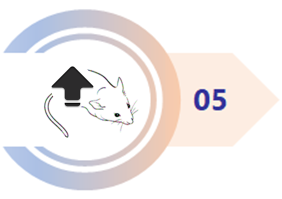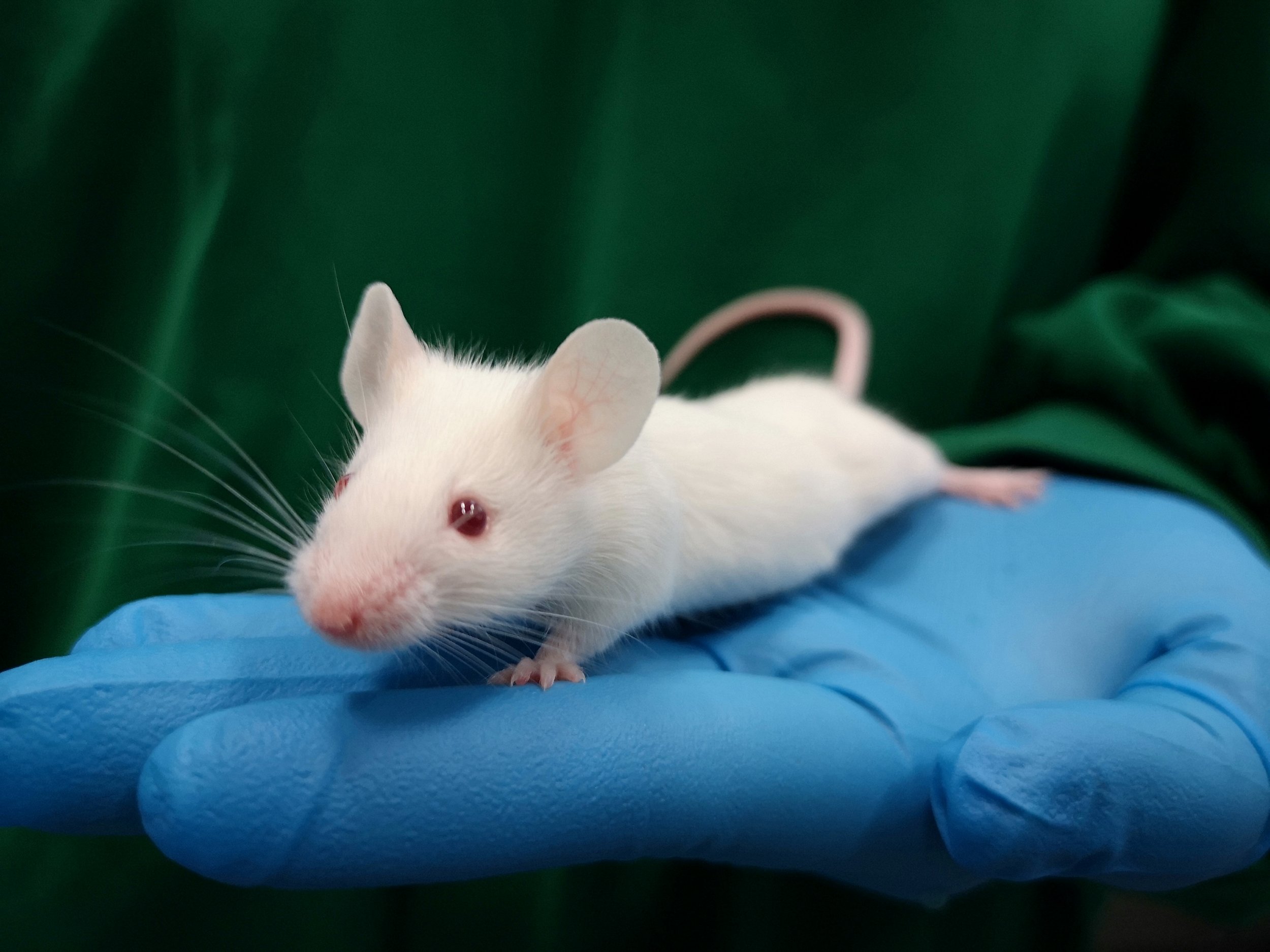
PRODUCT CODE: HIMICE
Human Immune System Mouse (HiMice)
Mice model with standard human immune system
Ideal for: General Immunology , infectious disease, oncology, and stem cell biology.
READ MORE ABOUT ITS APPLICATIONS IN
HiMice are a type of mouse model that has been engineered to possess a fully functioning human immune system.
This makes them an invaluable tool for studying the human immune response in a live animal model. HiMice are particularly useful for studying drugs aimed at treating a range of diseases, including cancer, autoimmune disorders, liver disease, and infectious diseases. By providing a more accurate representation of human immune responses, HiMice offer researchers a powerful tool for evaluating drug safety and efficacy.
How is it Constructed?
HiMice are generated by transplanting human CD34+ hematopoietic stem cells derived from human cord blood into immunodeficient mice (NOD-Scid IL2rg-/-). This process takes approximately 3-4 months for the complete development of a functional human immune system before they can be used for studies. These HiMice display stable expression of multiple human cell lineages, including B cells, T cells, monocytes, natural killer (NK) cells, and dendritic cells (DCs) in various organs such as the spleen, thymus, bone marrow, liver, lung, and intestine, as well as in the blood circulation. Thus, HiMice provide a unique and valuable model for studying human immune responses and diseases.
Humanization Process of HiMice
-

HLA Selection
CD34+ HSC HLA selection is allowed for partially matched study.
-

CD34+ HSC Injection
Cells will be delivered to immunodeficient mice after non-lethal irradiation to enhance the CD45 lymphocyte engraftment in mice.
-

Immune Cell Lineage Reconstitution
12-14 weeks of engraftment allows the reconstitution of human cell lineages in bloods and organs of mice without any signs of graft-versus-host disease (GvHD).
-

Quality Check on Peripheral Blood
A reconstitution check for basic cell lineages in blood for each individual mice to ensure CD45 has reached the minimal cut-off and to achieve balance of T-B cells.
-

Advancement with Human Cytokine
Further enhancement of T cells, myeloid cells and natural killer cells are allowed using our proprietary cytokine plasmid supplementation technique.
Features of HiMice
Stable engraftment of human immune cells in peripheral blood and tissues/organs for more than a year, meaning that these mouse models are suitable for long term studies of various immune and infectious diseases.
While the reconstitution of human immune cells in the peripheral blood is highly variable, the reconstitution of human immune cells in organs is consistently high.
Source: Gunawan et al. 2017. Sci Reports 7, 16642.
Figure: Engraftment of human CD45+ leukocytes in peripheral blood and organs of humanized mice.
Characteristics of HiMice
-
HiMice can engraft functional human immune cells for over a year without showing any signs of Graft versus Host Disease (GvHD).
-
Invivocue guarantees the reconstitution of human CD45 cell lineages in each mouse prior to use for experiments.
-
HiMice can survive more than a year.
-
HLA Typing: HiMice are HLA-typed to match the specific research interests.
-
HiMice display consistency with over 10% human cells in peripheral blood and over 80% human CD45+ cells in organs. Up to 100 HiMice can be generated from a single HSC donor.
-
HiMice can be customized to boost the reconstitution of specific immune cell subset according to research needs.
-
No additional license fees required for commercial research.
Differential distribution of functional immune cells lineages including T-cells, B-cells, monocytes, Natural Killer cells (NK) and Dendritic cells (DCs) in peripheral blood and tissues/organs of HiMice
Figure: Deep phenotyping of human immune cell populations in multiple tissues/organs obtained from a 12-week old HiMice.
Applications of HiMice
HiMice has been extensively validated across multiple applications, making it an effective human-relevant in vivo platform for research in areas such as oncology, autoimmune diseases, liver diseases, infectious diseases, and safety evaluations of cell and antibody therapeutic candidates. Its reliability and robustness make it an ideal choice for scientists and researchers seeking a comprehensive understanding of complex biological systems.

Given the complexity of human disease, in-depth knowledge of each model is key to success in pre-clinical studies. Invivocue offers tailor-made study designs to suit your research needs.






